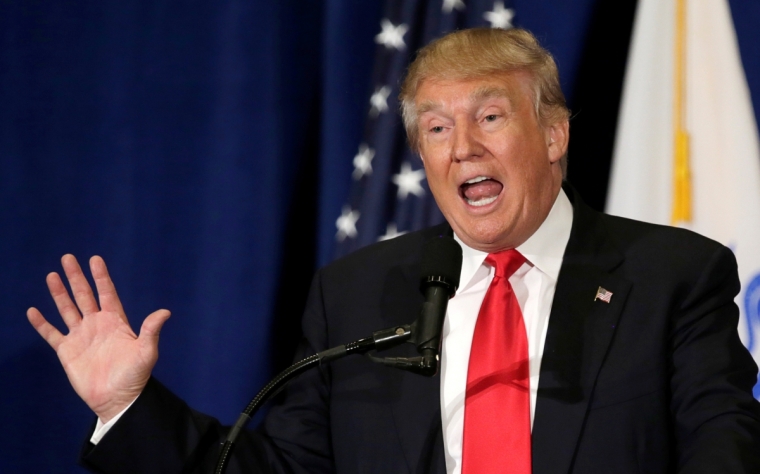Poll: Evangelicals wholeheartedly on board with Trump, religious 'nones' with Clinton

PRINCETON, N.J. (Christian Examiner) – Evangelicals aren't just warming to Trump; they're on fire for the candidate, if the data from a new Pew Research Center study is correct.
Pew reported July 13 that evangelical voters are "rallying" to the candidate and expressing a greater degree of support for the nominally-Christian Trump than they did for the Mormon Mitt Romney in 2012. Then, about two-thirds (73%) of Republican voters said they planned to turn out to support Romney.
Now, 78 percent of white evangelicals, a declining share of the electorate (according to the Public Religion Research Institute), say they'll head to the polls to support the New York billionaire – in spite of the fact that he's had difficultly explaining who Jesus is and what it means to seek forgiveness. Slightly more than one-third of the evangelicals polled (36%) said they "strongly" support the Trump campaign.
The opposite is true for presumptive Democrat nominee Hillary Clinton, who has been plagued by an FBI investigation into her "careless" handling of secret information on emails routed through a private server.
Clinton fairs well among "religious nones," or those falling within three broad categories to include atheists, agnostics, and those who may still be religious, but not necessarily tied to any specific church, denomination or ministry.
According to the survey, "Two-thirds of religiously unaffiliated registered voters say they would vote for Clinton is the election were held today, just as two-thirds intended to vote for Obama at a similar point in the 2012 campaign. Religious 'nones' are, however, somewhat less enthusiastic about Clinton's candidacy (26% now strongly support her) than they were about Obama in June 2012 (37%)."
Both groups, evangelicals and "religious nones," now reportedly make up two sizeable voting blocs – about one-fifth of registered voters each – and have the potential to cancel one another out in the election. If Trump ends up being the Republican candidate – and there is little reason to think now he will not be – 97 percent of evangelicals claim they will vote for Trump.
Among "religious nones," 99 percent claim they will vote for Clinton over Trump, even though their preferred candidate was Vermont Sen. Bernie Sanders.
Still, even with evangelicals coalescing around the New York billionaire, that doesn't mean they are happy with him.
"While many evangelical voters say they 'strongly' support Trump over Clinton, this does not necessarily mean Trump is their ideal choice for president or that they are convinced he shares their religious convictions," Pew said. "In the current survey, 42% of white evangelicals say it will be difficult to choose between Trump and Clinton because neither one would make a good president."
Because of Trump's fumbling explanations of key doctrines in Christianity – the divinity of Christ, the process of salvation, and Christian morality – nearly half of evangelical Republicans are not even sure he is, in fact, a Christian.
A January Pew poll found that 44% of white evangelical Republicans "view Trump as 'not too' or 'not at all' religious." An near-equal number (45%) claim they would choose Trump over Clinton mainly as a protest vote to Clinton, whose views on same-sex marriage, gay rights, abortion, welfare, and defense don't align with evangelical values.
Ironically, black Protestants are still one of the strongest voting blocks for the Democrat Clinton. According the survey, 89 percent claim they plan to support Clinton in the 2016 general election. Her policy proposals line up more closely with the traditional political leanings of the community.
Clinton has called for plans to place a three-month moratorium on student loan payments, argued for the expansion of federal abortion funding and also said "white people" should recognize the "systemic racism" in the U.S. and listen to the "legitimate cries that are coming from our African-American fellow citizens."
To read the full analysis of the new PRC study, click here. To weigh in, comment below.